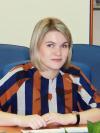References
- Adamchuk D. V. Professional and educational plans modern schoolchildren. CHelovek i obrazovanie. 2017. № 3. P. 116–125. (In Russ., abstract in Eng.)
- Kozlov D. V., Platonov D. P., Leshukov O. V. Where to study and where to work: interregional mobility of students and University graduates. Moscow : National Research University «Higher School of Economics», 2017. 32 p. (In Russ.)
- Golubitsky A. V. Regional socio-geographical atlas of the system of general education: is the «power of the territory surmountable». In: Voprosy obrazovaniya. 2017. № 1. P. 188–246. (In Russ., abstract in Eng.)
- Goryainova V. A., Akishin I. A. Efficiency of school activities and socio-economic characteristics of student families: is there a relationship?. In: Voprosy obrazovaniya. 2010. № 1. P. 151–160. (In Russ., abstract in Eng.)
- Gurtov V. A., Khoteeva E. A. Schoolchildren’s Career Trajectory Рlanning: Focus on «Want», «Can» and «Need». In: Integratsiya obrazovaniya. 2018. № 1 (22). P. 134‒150. (In Russ., abstract in Eng.)
- How to make education an engine of socio-economic development? / ed. by Y. I. Kuzminov, I. D. Frumin, P. S. Sorokin. Moscow : National Research University «Higher School of Economics», 2019. 288 p. (In Russ.)
- Konstantinovsky D. L., Popova E. S. The attitude of youth to education in Russia. In: Obshchestvennye nauki i sovremennost'. 2016. № 1. P. 5–19. (In Russ., abstract in Eng.)
- Kashnitsky I. S., Mkrtychyan N. V., Leshukov O. V. Interregional migration of youth in Russia: a comprehensive analysis of demographic statistics. In: Voprosy obrazovaniya. 2016. № 3. P. 169–203. (In Russ., abstract in Eng.)
- Mikhel E. A. Influence of the globalization of the world economy on cross-border labor migration of the population in the border region (on the example of the Republic of Karelia). In: Regional'naya ekonomika: teoriya i praktika. 2008. № 31. P. 22–24. (In Russ.)
- Mkrtychyan N. V. Migration of youth from small cities of Russia. In: Monitoring obshchestvennogo mneniya. 2017. № 1. P. 225–242. (In Russ., abstract in Eng.)
- Nagaytsev V. V. Social factors of formation of educational plans of high school students (based on the materials of sociological research in Barnaul in 2018). In: Siberian Socium. 2018. № 2(3). P. 62–74. (In Russ., abstract in Eng.)
- Konstantinovsky D. L. et al. New meanings in educational strategies of youth: 50 years of research. Moscow : TSP & M, 2015. 232 p. (In Russ.)
- Nurieva L. M., Kisilev S. G. Average score of the Unified State Examination. In: Obrazovanie i nauka. 2017. № 6 (19). P. 33–51. (In Russ., abstract in Eng.)
- Gurtov V. A., Kolesnikov V. N., Pitukhina M. A. From the traditional model of career guidance to the system of support and counseling throughout life: the experience of Finland. In: Nepreryvnoe obrazovanie: XXI vek [Lifelong education: the XXI century]. 2019. № 2 (26). P. 1–13. (In Russ., abstract in Eng.)
- Popova E. S. Research of social aspects of formation of motivation to education in young people: from theoretical approaches to operationalization. In: Voprosy obrazovaniya. 2012. № 4. P. 69–82. (In Russ., abstract in Eng.)
- Prakhov I. A., Yudkevich M. M. Influence of household income on the results of the Unified State Exam and the choice of university. In: Voprosy obrazovaniya. 2012. № 1. P. 126–147. (In Russ., abstract in Eng.)
- Yastrebov G. A., Bessudnov A. R., Pinskaya M. A. Kasaretsky S. G. The problem of contextualization of educational results: schools, the social composition of students and the level of deprivation of territories. In: Voprosy obrazovaniya. 2013. № 4. P. 188–246. (In Russ., abstract in Eng.)
- Savitskaya E. V., Altunina N. S. Higher education: reputational effects, signal distortions and favorable selection. In: Zhurnal institucional'nyh issledovanij. 2017. № 1. P. 117–133. (In Russ., abstract in Eng.)
- Simakova, A.V., Gurtov V. A. potential of the system of professional education of the territories of the Arctic zone of Russia. In: Nepreryvnoe obrazovanie: XXI vek [Lifelong education: the XXI century]. 2020. № 3 (31). P. 120–138. (In Russ., abstract in Eng.)
- Sofronov D. A. System of assistance to employment of graduates of higher education institutions of the region. In: REGIONOLOGIYA [REGIONOLOGY]. 2016. № 4 (97). P. 183–191. (In Russ., abstract in Eng.)
- Roshchin S. Yu., Rudakov V. I. Educational and career strategies of senior students of Russian universities. Newsletter. Moscow : National Research University «Higher School of Economics». 2014. 52 p. (In Russ.)
- Terentyev K. Yu. Educational strategies of university applicants: experience of classification construction. In: Nepreryvnoe obrazovanie: XXI vek [Lifelong education: the XXI century]. 2015. № 3. P. 13–25. (In Russ., abstract in Eng.)
- Zemtsov S. P., Eremkin, V. A., Barinova V. A. Factors of demand from leading universities of Russia. Literature review and econometric analysis. In: Voprosy obrazovaniya. 2015. № 4. P. 201–233. (In Russ., abstract in Eng.)
- Cherednichenko G. A. Russian youth in the education system: from level to level. In: Voprosy obrazovaniya. 2017. № 3. P. 152–182. (In Russ., abstract in Eng.)
- Shchegoleva, L. V., SvetovaN. Yu., Surovtsova T. G. Influence of the results of the final certification of school graduates on the success of training in higher education on the example of the Republic of Karelia. In: Nepreryvnoe obrazovanie: XXI vek [Lifelong education: the XXI century]. 2018. № 3 (23) P. 27–39. (In Russ., abstract in Eng.)
1. Adamchuk D. V. Professional and educational plans modern schoolchildren. CHelovek i obrazovanie. 2017. № 3. P. 116–125. (In Russ., abstract in Eng.)
2. Kozlov D. V., Platonov D. P., Leshukov O. V. Where to study and where to work: interregional mobility of students and University graduates. Moscow : National Research University «Higher School of Economics», 2017. 32 p. (In Russ.)
3. Golubitsky A. V. Regional socio-geographical atlas of the system of general education: is the «power of the territory surmountable». In: Voprosy obrazovaniya. 2017. № 1. P. 188–246. (In Russ., abstract in Eng.)
4. Goryainova V. A., Akishin I. A. Efficiency of school activities and socio-economic characteristics of student families: is there a relationship?. In: Voprosy obrazovaniya. 2010. № 1. P. 151–160. (In Russ., abstract in Eng.)
5. Gurtov V. A., Khoteeva E. A. Schoolchildren’s Career Trajectory Рlanning: Focus on «Want», «Can» and «Need». In: Integratsiya obrazovaniya. 2018. № 1 (22). P. 134‒150. (In Russ., abstract in Eng.)
6. How to make education an engine of socio-economic development? / ed. by Y. I. Kuzminov, I. D. Frumin, P. S. Sorokin. Moscow : National Research University «Higher School of Economics», 2019. 288 p. (In Russ.)
7. Konstantinovsky D. L., Popova E. S. The attitude of youth to education in Russia. In: Obshchestvennye nauki i sovremennost'. 2016. № 1. P. 5–19. (In Russ., abstract in Eng.)
8. Kashnitsky I. S., Mkrtychyan N. V., Leshukov O. V. Interregional migration of youth in Russia: a comprehensive analysis of demographic statistics. In: Voprosy obrazovaniya. 2016. № 3. P. 169–203. (In Russ., abstract in Eng.)
9. Mikhel E. A. Influence of the globalization of the world economy on cross-border labor migration of the population in the border region (on the example of the Republic of Karelia). In: Regional'naya ekonomika: teoriya i praktika. 2008. № 31. P. 22–24. (In Russ.)
10. Mkrtychyan N. V. Migration of youth from small cities of Russia. In: Monitoring obshchestvennogo mneniya. 2017. № 1. P. 225–242. (In Russ., abstract in Eng.)
11. Nagaytsev V. V. Social factors of formation of educational plans of high school students (based on the materials of sociological research in Barnaul in 2018). In: Siberian Socium. 2018. № 2(3). P. 62–74. (In Russ., abstract in Eng.)
12. Konstantinovsky D. L. et al. New meanings in educational strategies of youth: 50 years of research. Moscow : TSP & M, 2015. 232 p. (In Russ.)
13. Nurieva L. M., Kisilev S. G. Average score of the Unified State Examination. In: Obrazovanie i nauka. 2017. № 6 (19). P. 33–51. (In Russ., abstract in Eng.)
14. Gurtov V. A., Kolesnikov V. N., Pitukhina M. A. From the traditional model of career guidance to the system of support and counseling throughout life: the experience of Finland. In: Nepreryvnoe obrazovanie: XXI vek [Lifelong education: the XXI century]. 2019. № 2 (26). P. 1–13. (In Russ., abstract in Eng.)
15. Popova E. S. Research of social aspects of formation of motivation to education in young people: from theoretical approaches to operationalization. In: Voprosy obrazovaniya. 2012. № 4. P. 69–82. (In Russ., abstract in Eng.)
16. Prakhov I. A., Yudkevich M. M. Influence of household income on the results of the Unified State Exam and the choice of university. In: Voprosy obrazovaniya. 2012. № 1. P. 126–147. (In Russ., abstract in Eng.)
17. Yastrebov G. A., Bessudnov A. R., Pinskaya M. A. Kasaretsky S. G. The problem of contextualization of educational results: schools, the social composition of students and the level of deprivation of territories. In: Voprosy obrazovaniya. 2013. № 4. P. 188–246. (In Russ., abstract in Eng.)
18. Savitskaya E. V., Altunina N. S. Higher education: reputational effects, signal distortions and favorable selection. In: Zhurnal institucional'nyh issledovanij. 2017. № 1. P. 117–133. (In Russ., abstract in Eng.)
19. Simakova, A.V., Gurtov V. A. potential of the system of professional education of the territories of the Arctic zone of Russia. In: Nepreryvnoe obrazovanie: XXI vek [Lifelong education: the XXI century]. 2020. № 3 (31). P. 120–138. (In Russ., abstract in Eng.)
20. Sofronov D. A. System of assistance to employment of graduates of higher education institutions of the region. In: REGIONOLOGIYA [REGIONOLOGY]. 2016. № 4 (97). P. 183–191. (In Russ., abstract in Eng.)
21. Roshchin S. Yu., Rudakov V. I. Educational and career strategies of senior students of Russian universities. Newsletter. Moscow : National Research University «Higher School of Economics». 2014. 52 p. (In Russ.)
22. Terentyev K. Yu. Educational strategies of university applicants: experience of classification construction. In: Nepreryvnoe obrazovanie: XXI vek [Lifelong education: the XXI century]. 2015. № 3. P. 13–25. (In Russ., abstract in Eng.)
23. Zemtsov S. P., Eremkin, V. A., Barinova V. A. Factors of demand from leading universities of Russia. Literature review and econometric analysis. In: Voprosy obrazovaniya. 2015. № 4. P. 201–233. (In Russ., abstract in Eng.)
24. Cherednichenko G. A. Russian youth in the education system: from level to level. In: Voprosy obrazovaniya. 2017. № 3. P. 152–182. (In Russ., abstract in Eng.)
25. Shchegoleva, L. V., SvetovaN. Yu., Surovtsova T. G. Influence of the results of the final certification of school graduates on the success of training in higher education on the example of the Republic of Karelia. In: Nepreryvnoe obrazovanie: XXI vek [Lifelong education: the XXI century]. 2018. № 3 (23) P. 27–39. (In Russ., abstract in Eng.)














